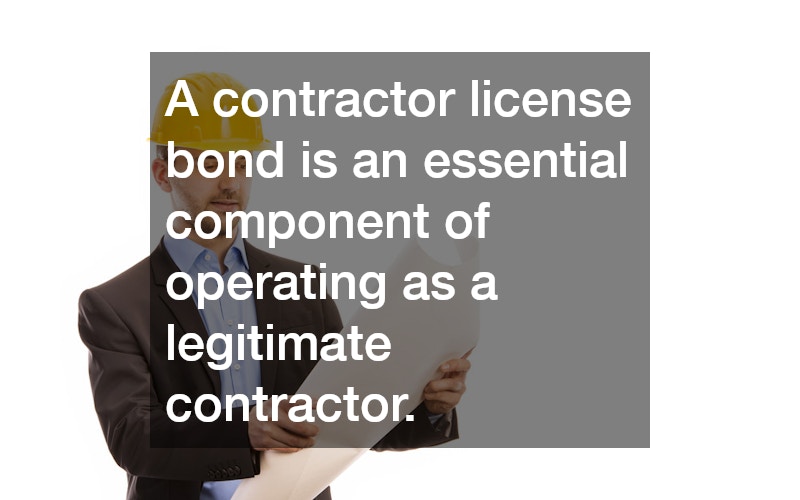
Contractor license bonds are crucial for ensuring compliance, protecting consumers, and maintaining industry standards. This guide provides an overview of what contractor license bonds are, why they are necessary, and how they work. By understanding these bonds, both contractors and clients can appreciate their role in creating a reliable and trust-driven contracting environment.
What Is a Contractor License Bond?
A contractor license bond is a type of surety bond required by many states before a contractor can legally operate. These bonds serve as a financial assurance, ensuring the contractor complies with relevant laws and regulations. Additionally, contractor license bonds provide a financial remedy for clients if the contractor fails to fulfill their contractual obligations.
The primary purpose of a contractor license bond is to protect consumers financially. In situations where a contractor does not adhere to state regulations or contractual promises, the bond can be used to compensate affected parties. As a result, these bonds help uphold industry standards by holding contractors accountable.
Without contractor license bonds, clients would be left vulnerable without a clear avenue for compensation in cases where contractors fail to deliver. Moreover, contractors themselves benefit from these bonds by demonstrating they meet state and legal requirements. This compliance builds trust with current and potential clients.
There are three main components involved in every contractor license bond: the principal, the obligee, and the surety. The principal is the contractor or business seeking the bond, responsible for fulfilling contractual duties. The obligee is the entity requiring the bond, usually a government authority ensuring consumer protection.
Finally, the surety is the company that underwrites the bond, guaranteeing the contractor will meet obligations. If the contractor defaults, the surety compensates the obligee, up to the bond’s limit. This tri-party arrangement ensures all parties understand their roles and responsibilities.
The relationship among the principal, obligee, and surety is symbiotic and crucial for the success of a contractor license bond. While the principal gains trust and legal permission to operate, the obligee secures consumer protection. Meanwhile, the surety provides peace of mind knowing regulations are enforced, creating an industry standard of reliability.
How to Obtain a Contractor License Bond
Obtaining a contractor license bond involves several key steps, starting with identifying state-specific requirements. Many states have unique licensing and bonding mandates, which contractors must comply with to operate legally. Contractors should contact their local licensing authority to find the specific bond amount and type required.
Once requirements are clarified, contractors must apply for the bond through a reputable surety company. This process typically involves submitting financial records, credit checks, and other pertinent information. With this data, the surety evaluates the contractor’s reliability and determines the bond premium.
After approval, contractors pay the premium, and the surety issues the bond. It is crucial for contractors to keep accurate records and remain in compliance with state regulations throughout this process. This diligence prevents any delays or legal issues in obtaining or maintaining the bond.
The cost of a contractor license bond can vary based on several factors, primarily the contractor’s financial standing and credit score. Sureties assess risk by evaluating the contractor’s ability to fulfill bond conditions. Consequently, contractors with excellent credit scores typically receive lower bond premiums.
Another factor influencing bond cost is the state’s required bond amount, which may differ based on the contractor’s business size or project scope. A higher bond amount leads to higher premiums. Contractors must be aware of these variations to budget accurately for their bonding expenses.
Additionally, the contractor’s industry experience and work history may affect bond pricing. A reputable, established contractor might receive more favorable terms than a newcomer in the field. As such, maintaining a good business track record and reputation can contribute to obtaining a more cost-effective license bond.
A contractor license bond is an essential component of operating as a legitimate contractor. By understanding what these bonds entail, how they can be obtained, and how they function, contractors can better prepare to meet state regulations and build trustworthy client relationships. Ultimately, these bonds contribute to the industry’s overall health by promoting accountability, reliability, and professionalism.




